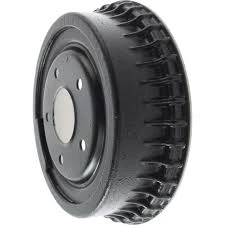
-
 Afrikaans
Afrikaans -
 Albanian
Albanian -
 Amharic
Amharic -
 Arabic
Arabic -
 Armenian
Armenian -
 Azerbaijani
Azerbaijani -
 Basque
Basque -
 Belarusian
Belarusian -
 Bengali
Bengali -
 Bosnian
Bosnian -
 Bulgarian
Bulgarian -
 Catalan
Catalan -
 Cebuano
Cebuano -
 Corsican
Corsican -
 Croatian
Croatian -
 Czech
Czech -
 Danish
Danish -
 Dutch
Dutch -
 English
English -
 Esperanto
Esperanto -
 Estonian
Estonian -
 Finnish
Finnish -
 French
French -
 Frisian
Frisian -
 Galician
Galician -
 Georgian
Georgian -
 German
German -
 Greek
Greek -
 Gujarati
Gujarati -
 Haitian Creole
Haitian Creole -
 hausa
hausa -
 hawaiian
hawaiian -
 Hebrew
Hebrew -
 Hindi
Hindi -
 Miao
Miao -
 Hungarian
Hungarian -
 Icelandic
Icelandic -
 igbo
igbo -
 Indonesian
Indonesian -
 irish
irish -
 Italian
Italian -
 Japanese
Japanese -
 Javanese
Javanese -
 Kannada
Kannada -
 kazakh
kazakh -
 Khmer
Khmer -
 Rwandese
Rwandese -
 Korean
Korean -
 Kurdish
Kurdish -
 Kyrgyz
Kyrgyz -
 Lao
Lao -
 Latin
Latin -
 Latvian
Latvian -
 Lithuanian
Lithuanian -
 Luxembourgish
Luxembourgish -
 Macedonian
Macedonian -
 Malgashi
Malgashi -
 Malay
Malay -
 Malayalam
Malayalam -
 Maltese
Maltese -
 Maori
Maori -
 Marathi
Marathi -
 Mongolian
Mongolian -
 Myanmar
Myanmar -
 Nepali
Nepali -
 Norwegian
Norwegian -
 Norwegian
Norwegian -
 Occitan
Occitan -
 Pashto
Pashto -
 Persian
Persian -
 Polish
Polish -
 Portuguese
Portuguese -
 Punjabi
Punjabi -
 Romanian
Romanian -
 Russian
Russian -
 Samoan
Samoan -
 Scottish Gaelic
Scottish Gaelic -
 Serbian
Serbian -
 Sesotho
Sesotho -
 Shona
Shona -
 Sindhi
Sindhi -
 Sinhala
Sinhala -
 Slovak
Slovak -
 Slovenian
Slovenian -
 Somali
Somali -
 Spanish
Spanish -
 Sundanese
Sundanese -
 Swahili
Swahili -
 Swedish
Swedish -
 Tagalog
Tagalog -
 Tajik
Tajik -
 Tamil
Tamil -
 Tatar
Tatar -
 Telugu
Telugu -
 Thai
Thai -
 Turkish
Turkish -
 Turkmen
Turkmen -
 Ukrainian
Ukrainian -
 Urdu
Urdu -
 Uighur
Uighur -
 Uzbek
Uzbek -
 Vietnamese
Vietnamese -
 Welsh
Welsh -
 Bantu
Bantu -
 Yiddish
Yiddish -
 Yoruba
Yoruba -
 Zulu
Zulu
Comparison of Disc and Drum Brake Systems Including Master Cylinder Differences
The Difference Between Disc Brake and Drum Brake Master Cylinder
When it comes to braking systems in automobiles, two primary types are commonly used disc brakes and drum brakes. Both systems utilize a master cylinder to push hydraulic fluid through the brake lines, activating the brake components. However, there are significant differences between the two types of brakes, which also affect the design and functionality of their respective master cylinders.
Disc Brakes
Disc brakes consist of a flat disc (rotor) that rotates with the wheel. When the brake pedal is pressed, hydraulic fluid is transferred from the master cylinder to the brake calipers, which house the brake pads. These pads are then pressed against the rotor, creating friction that slows the vehicle down. The master cylinder in a disc brake system is typically designed to produce higher hydraulic pressure, which is necessary to efficiently engage the calipers.
One of the key advantages of disc brakes is their superior performance in terms of heat management. The exposed design of the disc allows for better ventilation, which helps dissipate heat generated during braking. This reduces the risk of brake fade, a condition that occurs when brakes overheat, leading to reduced performance. Consequently, disc brakes tend to provide better stopping power, especially under demanding conditions, such as high-speed driving or heavy loads.
Drum Brakes
In contrast, drum brakes utilize a different mechanism. They consist of a round drum that rotates with the wheel, and the braking is achieved through brake shoes that press against the inner surface of the drum. When the brake pedal is engaged, hydraulic pressure from the master cylinder pushes the brake shoes outward, creating friction against the drum. Because drum brakes require a different approach to generating friction, the master cylinder must accommodate this operational difference.
difference between disc brake and drum brake master cylinder

Drum brake systems generally offer simpler designs and can be less expensive to manufacture. However, they have some downsides compared to disc brakes. One significant issue is heat buildup. The enclosed nature of the drum can trap heat, leading to brake fade. This makes drum brakes less effective in high-performance situations, where consistent stopping power is crucial.
Key Differences in Master Cylinder Functionality
The master cylinder for disc brakes is often constructed to handle more intensive hydraulic pressure due to the need to engage multiple pistons in the calipers. They typically have a larger bore size, resulting in a more rapid fluid transfer and higher pressure output.
On the other hand, the master cylinder for drum brakes might have a smaller bore, as the mechanical action of the brake shoes requires less hydraulic force to expand against the drum. This difference can impact the overall feel of the brake pedal; disc brakes usually provide a firmer and more responsive pedal feel, whereas drum brakes can sometimes feel softer and less immediate.
Conclusion
In summary, while both disc brakes and drum brakes employ hydraulic master cylinders in their braking systems, the design and operational requirements of these components differ significantly. Disc brakes offer advantages in terms of heat dissipation and stopping power, requiring more robust master cylinders capable of high pressure. Drum brakes, while more economical and simpler in design, face challenges with heat management and can offer a different brake feel. Understanding these distinctions is crucial for anyone involved in automotive design, repair, or simply looking to make an informed choice about vehicle performance.
-
What Are Drum BrakesNewsJul.07,2025
-
Understanding Brake Drum MaterialNewsJul.07,2025
-
Semi-Trailer Brake Drum: A Key Component for Extreme Loads and Long-Distance TransportNewsJul.07,2025
-
Drum Brake Pads for SaleNewsJul.07,2025
-
Brake Drums for SaleNewsJul.07,2025
-
Brake Drum ManufacturerNewsJul.07,2025
-
Aluminum Brake Drums: The Future of High-Performance CarsNewsJul.07,2025
